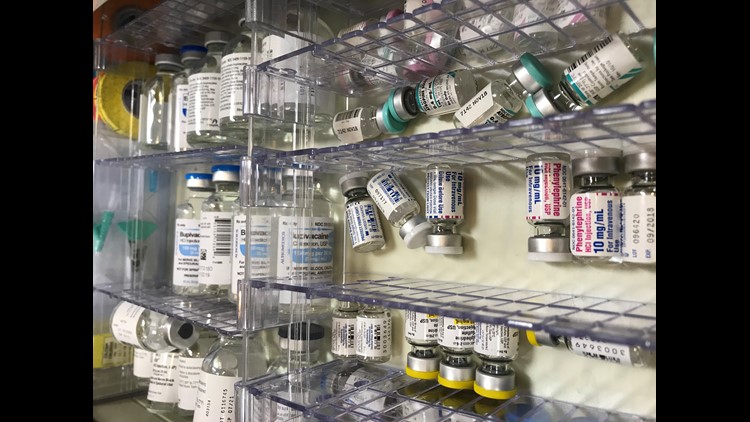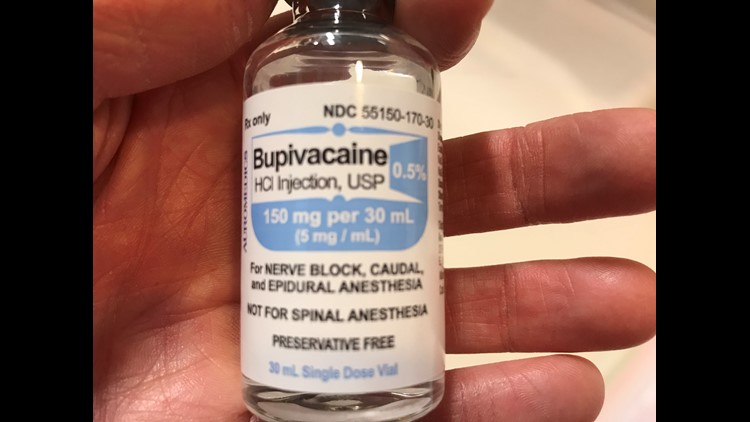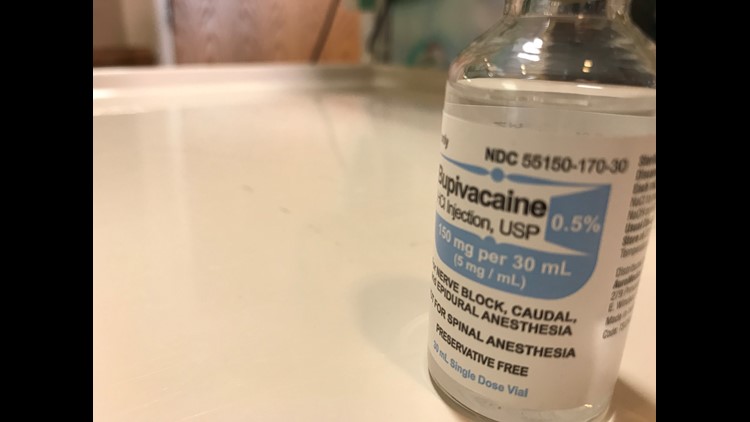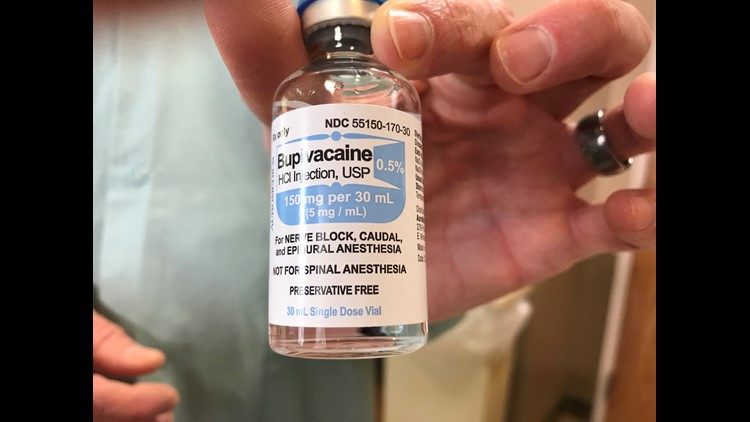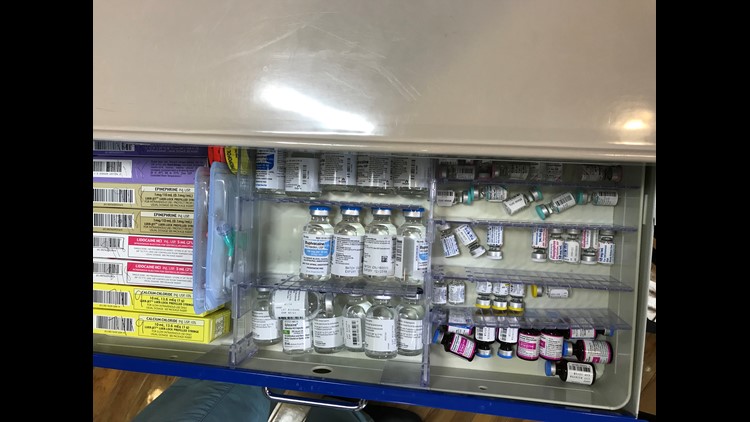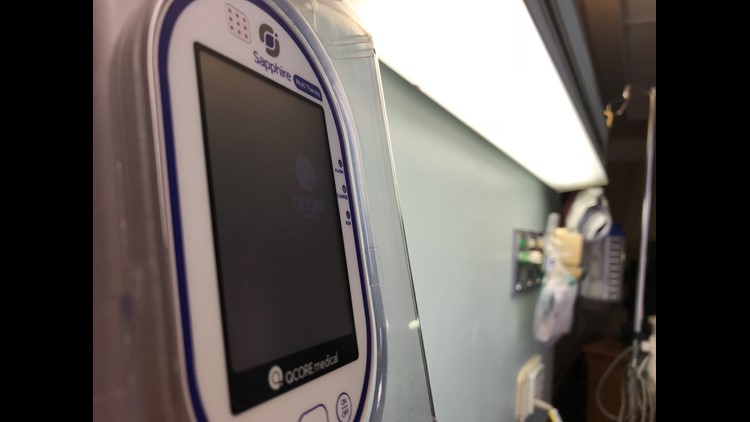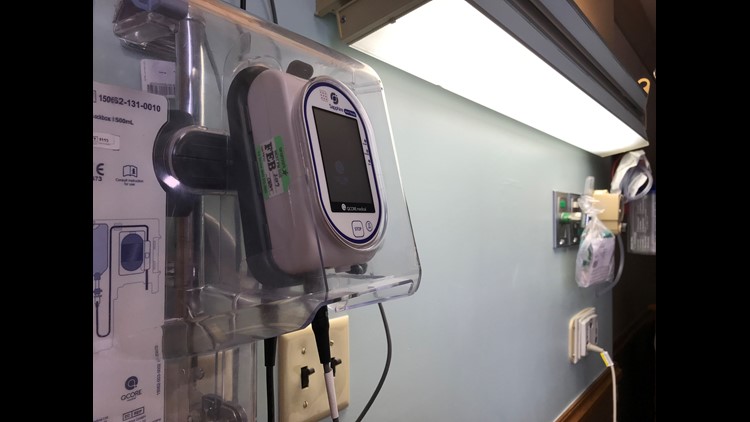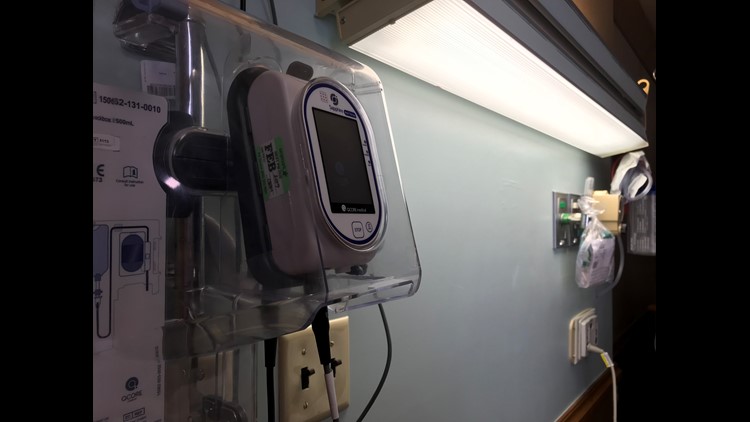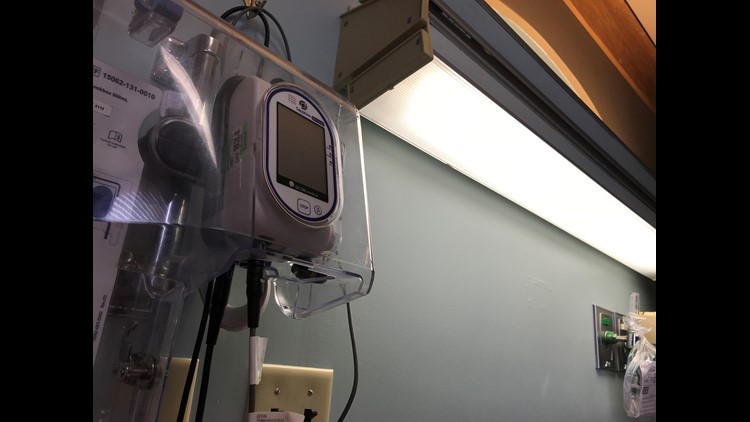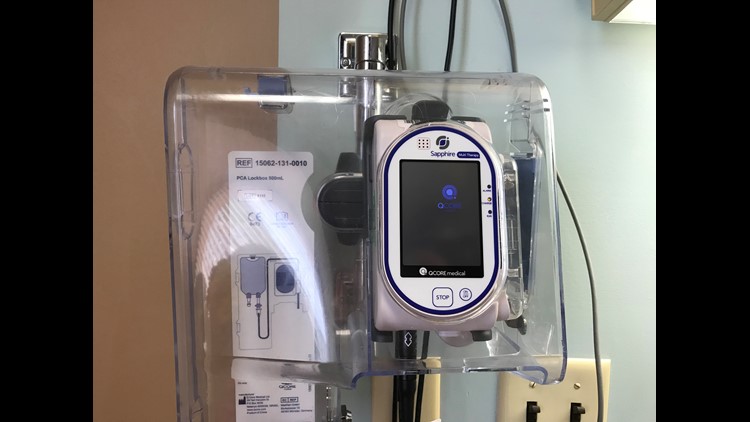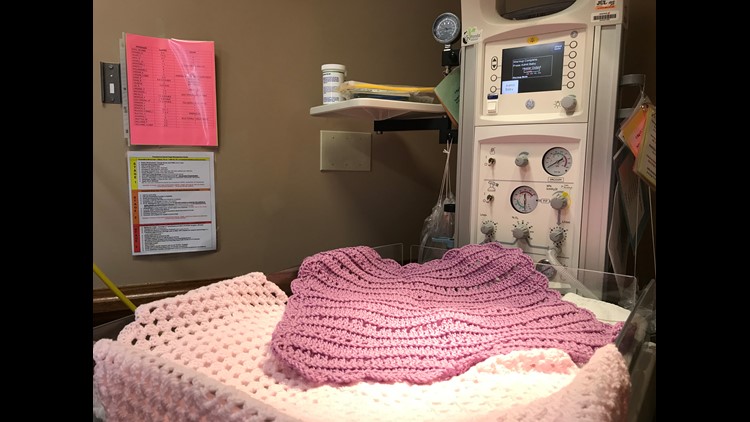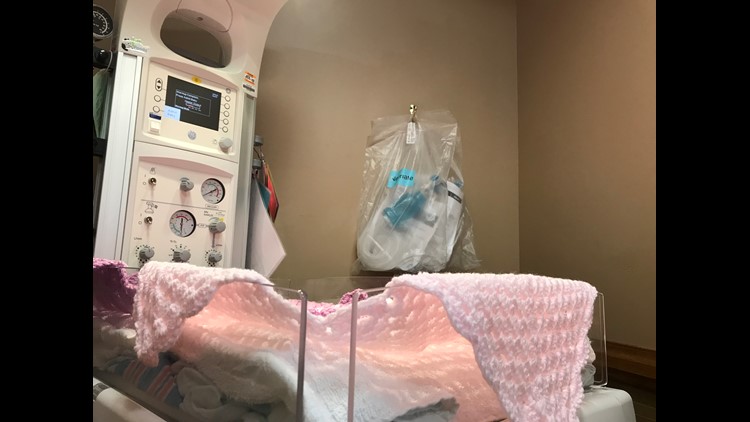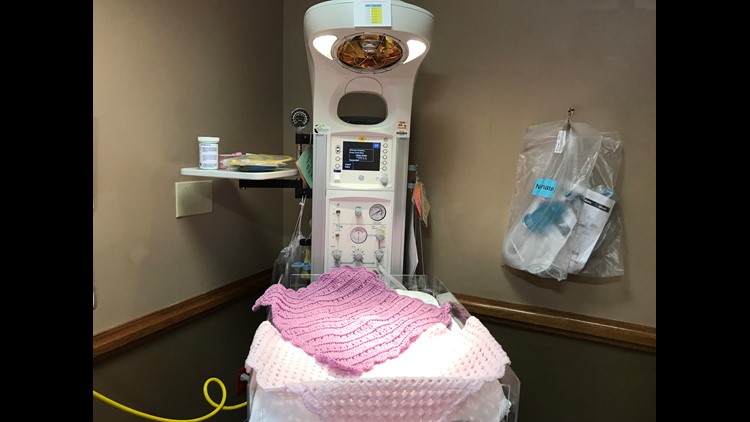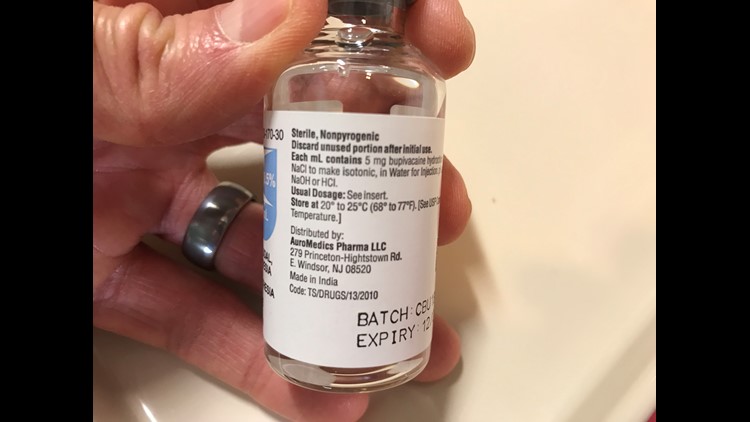CHESAPEAKE, Va. (WVEC) -- A nationwide shortage of a drug commonly used in C-sections has doctors and mothers-to-be concerned. That includes many in Hampton Roads.
Higher concentrations of Bupivacaine are used to numb pregnant women for C-sections. Lower concentrations of the drug are used for pain management in epidurals.
Because of the shortage, hospital systems in our area are monitoring their supplies and coming up with alternatives.
Mackenzie Palmer’s daughter Eleanor's grand entrance into this world was not without drama. In January, Mackenzie went in for a checkup.
“I was on the monitor for about twenty minutes, and her heart rate dropped,” she said. “I was really scared like I was shaking."
A C-section became necessary.
“When I heard her cry it was like 'I'm a mom,'” she said. “It was just amazing because it was like 'she was just inside me, and then she's on my chest.'”
Mackenzie can't imagine what childbirth would be like without that experience.
Anesthesiologist Scott Pennington told 13News Now the situation makes it slightly more likely he'd have to put a woman to sleep in an unplanned C-section; however, use of general anesthesia is not ideal.
Pennington and other doctors are trying to use other methods, including administering a lower concentration of the drug when circumstances permit.
“There's a big difference in risk for the mother, primarily due to risks of airway instrumentation or placing a breathing tube,” Dr. Pennington described.
Pennington’s anesthesia department at Chesapeake Regional Healthcare is particularly short on the highest concentration of Bupivacaine, which is also the one most commonly used.
“We're reserving those for the two in the morning, where you need it to set up pretty quick because we're not doing it because we want to. We're doing it because the baby's not looking good,” Pennington said.
PHOTOS: Shortage of C-Section Drug
He and other doctors have been forced to come up with alternatives, like using a lower concentration of the drug when they have more leeway.
“I don't want it to be mistaken that we don't have medication, we just don't have the one that is the most historically used,” he clarified.
A spokesperson for Bon Secours in the area said this is part of the national shortage of IV narcotics. That health system is converting to alternative medications and treatment methods to ensure patients have access to pain control.
“We are naturally keeping our physicians informed of the changes, but this is more than just a singular drug shortage, the situation has impacted the supply of many narcotics,” Lynne Zultanky said.
At Sentara hospitals, a spokesperson looked into it and told 13News Now the shortage of Bupivacaine is not nearly as dire as other IV narcotics. They have not been in a position of needing substitutes for it.
13News Now reached out to Pfizer, which is one of the largest manufacturers of Bupivacaine.
A spokesman described a delay caused by “manufacturing capacity constraints, prioritization of other medically necessary products, competitor shortages, and complexities related to upgrade work at manufacturing sites.”
"We recognize the importance of these medications to patients and physicians,” Director of Corporate Affairs, Steve Danehy, wrote. “These issues are now resolved, and we have begun shipping product. Full recovery may not occur until the third quarter of this year."
Mackenzie said to make sure drug manufacturers truly realize the effects of this shortage, she'd tell them her story, and hope they'd hear her message.
“There's nothing like her coming into the world,” she said. “That is when you feel 'oh my gosh I love this little thing that I've never met before.’ If there’s that shortage, and the mom misses that opportunity, it’s one less bonding step to have with her baby.”
Dr. Pennington advises in the meantime, moms-to-be can and should ask questions. He believes it is reasonable to check with the hospital where they'll deliver to make sure they have enough medication.
► Make it easy to keep up to date with more stories like this. Download the 13News Now App.



